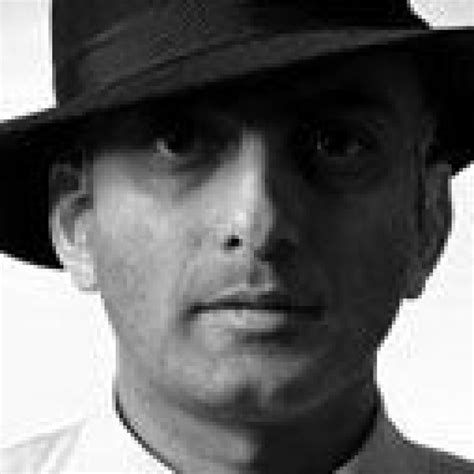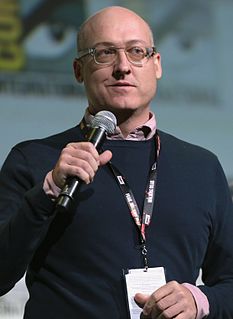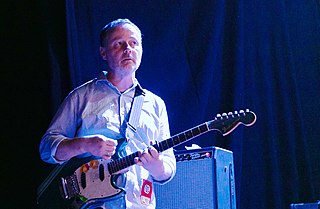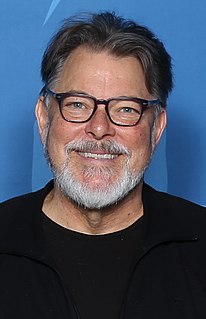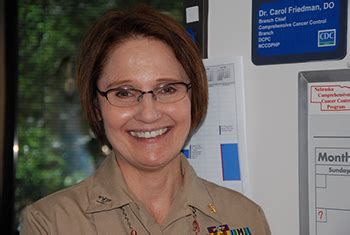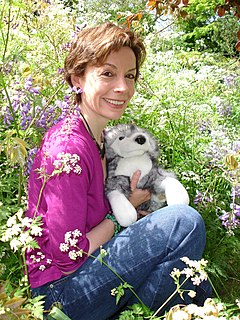Ein Zitat von Suhayl Saadi
Mein Motto ist: Schreiben Sie über alles, was Ihnen gefällt. Stellen Sie einfach sicher, dass Sie es effektiv tun. Wir haben alle alle Emotionen gehabt, der Rest ist Forschung und dieser Sprung, den einige schaffen können und andere nicht – das ist nicht wirklich etwas, das man lernen kann, sonst wären alle Literaturwissenschaftler wunderbare Romanautoren.
Themen zitieren
Über
Akademiker,
alles
Blutige
kann nicht
effektiv sein
, Emotionen
, Belletristik
-Autor,
Belletristik-Autoren
hatten
gerade
einen Sprung
gemacht, lernen
wie
Literatur,
machen
Motto
zu meinem Motto,
andere,
sonst
recherchieren
wirklich ruhen sich
etwas
,
sicher
, gut,
was
wunderbar
wäre
,
schreiben
Schriftsteller
Verwandte Zitate
Ich muss wirklich wissen, wohin ich mit der Fiktion gehe, um sie auf eine Weise zu schreiben, mit der ich zumindest zufrieden bin. Und ich glaube wirklich, dass viele Belletristikbücher schlecht enden, weil großartige Autoren sagten: „Ich werde es einfach herausfinden“ und sich darauf einließen, aber so viele Probleme geschaffen haben, dass sie irgendwie unmöglich zu lösen sind. Ich meine, ich spreche davon, dass wirklich gute Autoren das tun, und wenn sie am Ende angelangt sind, merkt man, dass sie entweder etwas Absurdes tun mussten oder dass sie die Dinge einfach nicht wirklich lösen. Deshalb verbringe ich bei Belletristik viel mehr Zeit mit dem Skizzieren und bei Humor mache ich wirklich nicht viel davon.
Wenn mein Schauplatz für einen Leser neu ist oder die Themen des Romans neu sind, hoffe ich, dass er etwas über die Welt lernt. Ich möchte sagen, dass sie darauf vertrauen können, dass das, was sie in dem Roman lernen, korrekt ist, weil ich sehr auf Fakten achte. Ich recherchiere viel, um sicherzustellen, dass ich ihnen keine blauen Jupitermonde gebe. Es ist keine Science-Fiction.
Für einen Schriftsteller ist die persönliche Freiheit nicht so wichtig. Es ist nicht die Freiheit des Einzelnen, die die Größe der Literatur garantiert; andernfalls wären Schriftsteller in demokratischen Ländern allen anderen überlegen. Einige der größten Schriftsteller schrieben unter der Diktatur – Shakespeare, Cervantes.
Manche Menschen musste man auf die eine oder andere Weise einfach umarmen, man musste in die Muskeln beißen, um in ihrer Gesellschaft den Verstand zu behalten. Man musste sie an den Haaren packen und wie ein Ertrinkender festhalten, damit sie einen in ihre Mitte zogen. Sonst würden sie, fast winkend, lässig die Straße entlang auf einen zulaufend, über eine Mauer springen und monatelang verschwunden sein.
Ein großer Teil der Animationsregie besteht darin, zu entscheiden, was Sie wirklich tun möchten, und sicherzustellen, dass es um etwas geht. Was mir an Animationen am besten gefällt, ist das Geschichtenerzählen. Man kann sich wirklich in die Geschichte vertiefen und Zeit mit den Autoren verbringen. Die Autoren schreiben nicht einfach und gehen.
Ich würde gerne Liz Phairs Roman als Ghostwriter schreiben. Aber darüber weiß ich nicht wirklich Bescheid. Es scheint eine würdige Sache zu sein, in die ich übergehen kann, wenn ich mich der anderen Seite von 45 nähere. Ich habe im Moment einfach alle Hände voll zu tun. Es besteht die Möglichkeit, zu versuchen, eine Art Biografie über Pavement zu schreiben – eine Art kryptische Sach-/Fiktion-Blowout. Die Geschichte wurde nie gut erzählt. Aber das ist eine Menge Innenschau, von der ich mir nicht sicher bin, ob ich sie machen möchte. Ich schaue gern nach draußen.
Ich weiß ganz genau, dass man solche lächerlichen, verrückten Situationen braucht; Über nichts anderes kann man wirklich gut schreiben. Warum war dieser alte Kerl ein so hervorragender Propagandatechniker? Weil er so viele verrückte, quälende Dinge hatte, über die er sich aufregen konnte. Du musst verletzt und verärgert sein; Sonst fallen einem die wirklich guten, durchdringenden, röntgenhaften Phrasen nicht ein.
Wie Sie vielleicht wissen, lautet mein Motto: „Alle Erinnerungen sind Fiktion.“ Es könnte genauso gut heißen: „Alle Fiktion ist Erinnerung.“ Auf den Punkt gebracht entziehen sich diese beiden Aussagen der Einfachheit der Logik, bieten aber zumindest einige wirklich wichtige Wahrheiten über Erzählkunst und über das Gedächtnis. Daher würde ich sagen, dass jede Kunst persönlich ist.
Ich bin sozusagen – man lernt es, man beherrscht es und sorgt dann dafür, dass es einfach verschwindet. Wissen Sie, wenn ich unsichtbare Lichter hätte, würde ich das tun, und unsichtbare Kameras. Ich versuche einfach wirklich, mich mit meinem Thema auseinanderzusetzen, und ich respektiere den technischen Aspekt, aber das ist nichts, worüber ich an dieser Stelle nachdenke.
Ich habe große Welten und die Art des Weltaufbaus, bei dem man ein Portal in ein neues Reich öffnen kann, das sich voll und vollständig anfühlt, schon immer geliebt. Gleichzeitig liebe ich Geschichte sehr. Die Kombination aus großen Welten und Geschichte zieht mich also direkt in die Fantasie. Nun ja, es sollte mich zu historischen Romanen bewegen, aber ich bin so ein Perfektionist in Sachen Recherche, dass ich nicht sicher bin, ob ich jemals ein Buch in diesem Genre richtig schreiben könnte. In der Fantasie muss man das gleiche Maß an Präzision haben, aber es ist nicht so forschungsbasiert. Außerdem kann ich meine kleinen Infoblätter schreiben und meine Karten zeichnen.
Manche Literatur ist Wissen, manche sind nur Daten. Aber wenn es mir gelingt, ein „Happy“-Ende zu bekommen – und das ist der Fall, wenn für die Charaktere, über die ich schreibe, etwas passiert, dass sie von ihrem Anfangszustand zu Wissen oder Weisheit übergehen, sie wissen etwas, was sie nie anerkannt oder erkannt hätten Wenn da nicht mein Buch gewesen wäre – das ist für mich das, was Literatur ausmacht.
